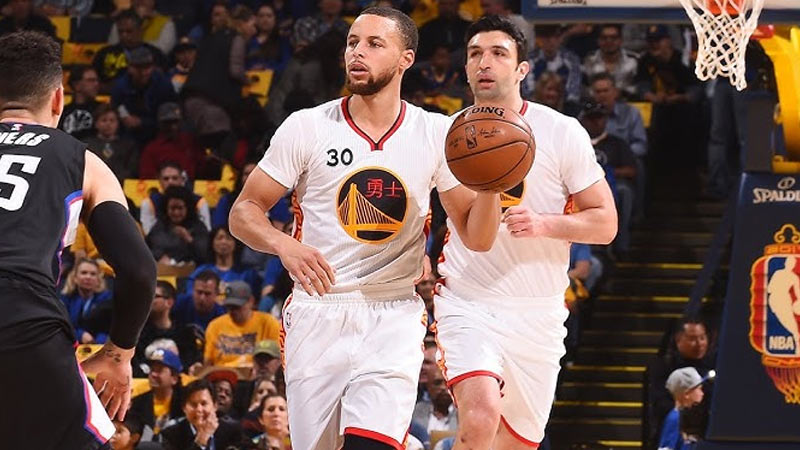Basketball is a dynamic sport that requires players with various skill sets to come together and form a cohesive unit.
One crucial position on the basketball court is the point guard. The point guard serves as the team’s primary playmaker, responsible for orchestrating the offense and setting the tone for the game.
In this article, we will explore the role and responsibilities of a point guard, examine their statistical impact on the game, discuss notable NBA point guards, and answer frequently asked questions about this vital position. So, stay focused.
What Is a Point Guard in Basketball?
A point guard is a specific position in basketball, typically known as the “1” position. The point guard is often the smallest player on the court, but their impact on the game extends far beyond their physical stature.
The primary role of a point guard is to facilitate the team’s offense, organize plays, distribute the ball, and create scoring opportunities for their teammates.
They are often referred to as the “floor general” due to their ability to see the entire court, make quick decisions, and effectively communicate with their teammates.
Point Guard in the NBA
In the fast-paced and highly competitive world of the NBA, the point guard position holds a special place.
Point guards play a pivotal role in their team’s success, acting as the floor general and orchestrating the offense.
They are often referred to as the quarterback of the team, responsible for setting up plays, controlling the tempo of the game, and making crucial decisions on the court.
In this section, we will delve deeper into the role of point guards in the NBA, their essential skills, and the impact they have on their teams.
Leadership and Court Vision
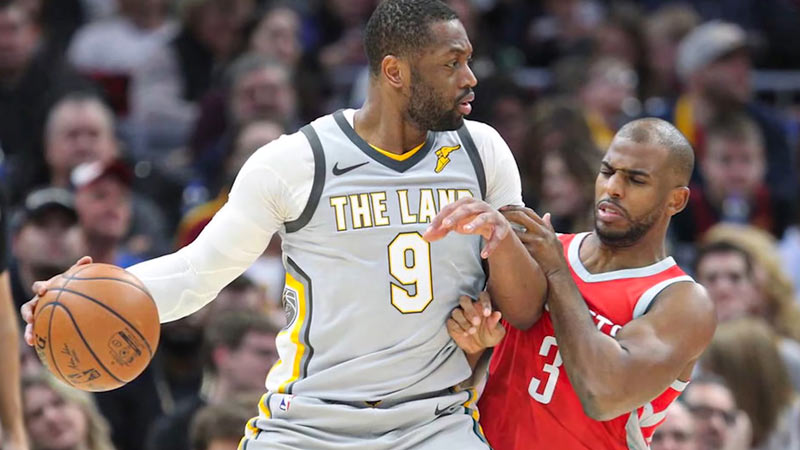
One of the defining characteristics of NBA point guards is their exceptional leadership qualities and court vision. They have the ability to see the entire court, anticipate plays, and make split-second decisions.
Point guards possess a high basketball IQ, which allows them to read defenses, identify mismatches, and find open teammates.
Their court vision enables them to make accurate passes, threading the ball through tight spaces and creating scoring opportunities for their teammates.
Ball-Handling and Playmaking
Another crucial aspect of a point guard’s skill set is their ball-handling ability. Point guards must have exceptional ball control and the confidence to navigate through defenses, break down opponents, and create their own shot opportunities.
Their ball-handling skills allow them to penetrate the defense, draw defenders, and create openings for their teammates.
They must be adept at using crossovers, dribble moves, and change of pace to keep defenders off balance and create scoring opportunities.
Creating for Teammates
One of the primary responsibilities of a point guard is to create scoring opportunities for their teammates.
They excel at making accurate and timely passes, whether it’s a crisp bounce pass in traffic, a lob to a teammate for an alley-oop, or a precise kick-out pass to an open shooter.
Point guards understand the strengths and preferences of their teammates and actively seek ways to put them in positions to succeed.
Their ability to facilitate and distribute the ball effectively is crucial for team chemistry and offensive flow.
Scoring Ability
While playmaking and setting up teammates are crucial, point guards must also possess scoring ability to keep defenses honest.
They should be capable of scoring from various positions on the court, whether it’s driving to the basket, shooting mid-range jumpers, or knocking down three-pointers.
Point guards with scoring prowess can draw defenders, open up passing lanes, and create space for themselves and their teammates.
Defensive Contributions
Point guards also play a significant role on the defensive end of the court. They are responsible for pressuring the opposing team’s point guard, disrupting passing lanes, and initiating defensive rotations.
Quick hands, lateral quickness, and defensive awareness are essential for point guards to be effective on the defensive end. They must be able to stay in front of their opponents, fight through screens, and provide help defense when necessary.
Impact on Team Success
The impact of a skilled point guard on a team’s success cannot be overstated. Point guards often serve as the team’s primary playmaker and decision-maker, dictating the offensive flow and setting the tone for their team.
Their ability to control the tempo, make smart decisions, and involve their teammates in the offense can elevate the overall performance of the team.
A proficient point guard can maximize the strengths of their teammates, unlock offensive potential, and provide stability and leadership on the court.
Some Legendary NBA Point Guards
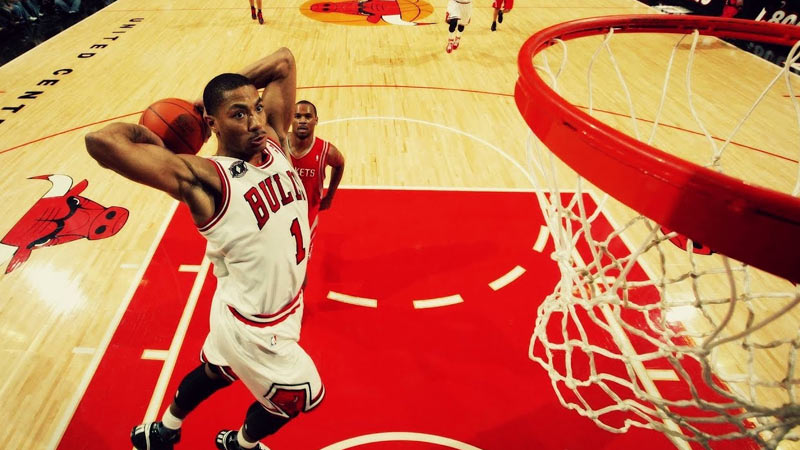
Throughout NBA history, several legendary point guards have left an indelible mark on the game.
Players like Magic Johnson, John Stockton, Isiah Thomas, Steve Nash, and Chris Paul have redefined the position and set a high standard for future generations.
These point guards showcased exceptional skills, basketball IQ, and leadership qualities, and their impact on their respective teams and the league as a whole is undeniable.
What Is the Point Guard Statistics in Basketball?
While traditional basketball statistics such as points, rebounds, and assists provide a glimpse into a point guard’s performance, there are specific statistics that highlight their impact on the game.
Some of the key point guard statistics include:
Assists
Assists measure the number of passes made by a point guard that directly lead to a made basket by a teammate. Assists showcase a point guard’s ability to create opportunities and involve their teammates in the offense.
Turnovers
Turnovers indicate the number of times a point guard loses possession of the ball due to errors such as bad passes or mishandling.
Limiting turnovers is crucial for a point guard as it maintains offensive efficiency and minimizes scoring opportunities for the opposing team.
Assist-to-Turnover Ratio
This statistic compares the number of assists to the number of turnovers committed by a point guard. A high assist-to-turnover ratio demonstrates a point guard’s ability to make effective decisions and take care of the ball.
Steals
Steals reflect a point guard’s defensive prowess and ability to disrupt the opponent’s offense by intercepting passes or forcing turnovers.
Usage Rate
Usage rate measures the percentage of team plays that involve a particular player, indicating the level of offensive responsibility placed on the point guard.
A high usage rate suggests that the point guard is heavily involved in the team’s offensive actions.
Responsibilities of the Point Guard in Basketball
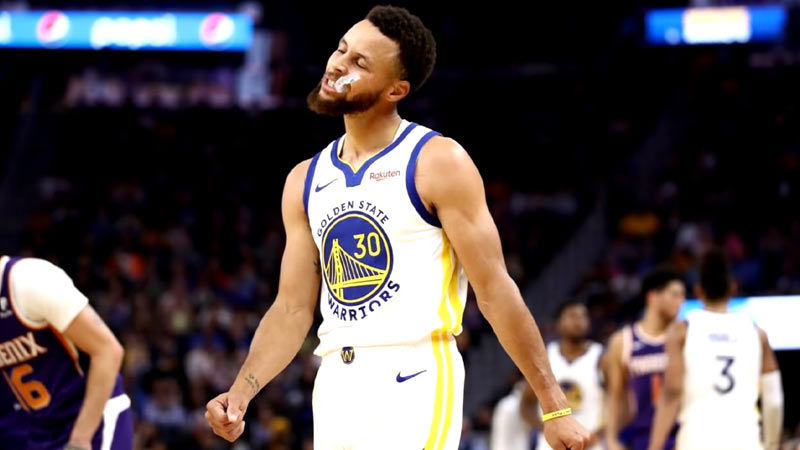
The point guard’s responsibilities extend beyond statistics. Here are some key responsibilities of a point guard on the basketball court:
Playmaking
The point guard is the primary playmaker, responsible for initiating offensive plays, setting up teammates, and creating scoring opportunities.
They must possess exceptional court vision and passing skills to effectively distribute the ball.
Ball Handling
Point guards must have excellent ball-handling skills to navigate through the defense, protect the ball, and avoid turnovers. Their ability to dribble effectively under pressure is crucial in maintaining possession and running the offense smoothly.
Decision-Making
Point guards need to make quick and accurate decisions on the court. They must read the defense, assess the situation, and determine the best course of action, whether it’s passing, driving to the basket, or taking a shot.
Leadership
Point guards are often considered the leaders of the team. They must exhibit strong leadership qualities, communicate effectively with their teammates, and inspire confidence on and off the court.
Court Vision
A point guard’s court vision is vital as they must be able to see the entire court, anticipate defensive rotations, and make precise passes to exploit scoring opportunities for their teammates.
Role of the Point Guards in Defense
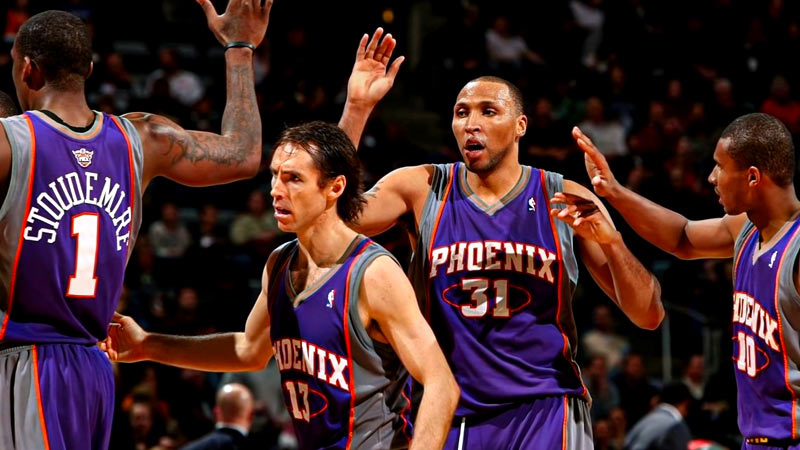
Point guards are not just responsible for scoring and setting up plays; they are instrumental in leading the team’s defensive efforts and maintaining defensive intensity throughout the game.
Point guards have a unique position on the court that allows them to impact the game defensively in multiple ways. Here are some key points to elaborate on their defensive contributions:
Applying Defensive Pressure
Point guards are often assigned to guard the opposing team’s primary ball handler.
Their quickness, agility, and defensive instincts enable them to apply relentless pressure on the ball, making it difficult for the opponent to initiate their offense smoothly.
By pressuring the ball, point guards can disrupt the opponent’s offensive rhythm and force turnovers.
Disrupting Passing Lanes
Point guards possess exceptional anticipation skills and court vision, allowing them to anticipate and disrupt passing lanes. They have the ability to read the opponent’s intentions, jump passing lanes, and intercept passes.
By creating deflections and steals, point guards generate transition opportunities for their team, leading to quick and easy scoring chances.
Communication and Defensive Assignments
Point guards are often considered the floor generals of the team. They have a comprehensive understanding of the defensive schemes and assignments and are responsible for communicating and directing their teammates on the defensive end.
Point guards must be vocal leaders, constantly communicating switches, rotations, and defensive adjustments to ensure that everyone is on the same page.
Staying Engaged and Active
Point guards need to maintain high defensive energy and remain engaged throughout the game. They cannot afford to take defensive possessions off or lose focus.
By staying active, point guards can disrupt the opponent’s offensive flow, apply pressure, and create opportunities for their team to regain possession.
Controlling the Pace
Point guards have a significant impact on dictating the pace of the game, not only on offense but also on defense.
They can choose to push the tempo and apply full-court pressure, forcing opponents into hurried decisions and turnovers.
Alternatively, they can slow down the game, dictate defensive rotations, and limit the opponent’s fast-break opportunities.
Defensive Leadership
Point guards are often the leaders of the team, both on and off the court. They set the tone defensively through their effort, intensity, and commitment.
By leading by example, point guards inspire their teammates to give their best defensive efforts, fostering a collective defensive mindset within the team.
In summary, point guards play a significant role in the team’s defensive strategy. They apply defensive pressure, disrupt passing lanes, communicate defensive assignments, and contribute to generating turnovers.
Best NBA Point Guards of All Time
The NBA has witnessed numerous legendary point guards who have left an indelible mark on the sport. Here is a table showcasing some of the best NBA point guards of all time:
| Player Name | Team(s) Played For | Championships Won | Career Assists | Career Points |
| Magic Johnson | Los Angeles Lakers | 5 | 10,141 | 17,707 |
| John Stockton | Utah Jazz | 0 | 15,806 | 19,711 |
| Isiah Thomas | Detroit Pistons | 2 | 9,061 | 18,822 |
| Stephen Curry | Golden State Warriors | 3 | 7,792 | 18,455 |
| Oscar Robertson | Cincinnati Royals | 1 | 9,887 | 26,710 |
These players have not only displayed exceptional skills but also impacted the game in unique ways, cementing their status as some of the greatest point guards in NBA history.
FAQs
Can a point guard score points or are they only responsible for passing?
While point guards are primarily responsible for playmaking and creating scoring opportunities for their teammates, they can also score points themselves.
Many point guards have showcased their scoring ability and contributed significantly to their team’s offense.
What skills are essential for a point guard?
Essential skills for a point guard include ball handling, passing, court vision, decision-making, leadership, and defensive abilities.
These skills collectively enable a point guard to effectively orchestrate the offense and impact the game on both ends of the court.
Are there any height requirements to play as a point guard?
There are no strict height requirements to play as a point guard. While traditionally point guards have been shorter in stature, the modern game has seen taller point guards excel.
The key attributes are skills such as playmaking, decision-making, and court vision, regardless of height.
Can point guards play other positions on the court?
Point guards can play other positions on the court, depending on their versatility and the team’s needs.
However, their skill set and natural instincts make them most effective in the point guard position, where they can maximize their playmaking abilities.
Who is considered the greatest point guard of all time?
The title of the greatest point guard of all time is a subject of much debate and varies based on individual opinions.
Players like Magic Johnson, John Stockton, and Stephen Curry are often mentioned in discussions about the greatest point guards, but it ultimately comes down to personal preferences and criteria for evaluation.
Wrapping Up
The point guard position in basketball holds significant importance, as these players are responsible for directing the team’s offense and making crucial decisions on the court.
They possess a unique skill set that combines playmaking, leadership, and court vision. From setting up plays to distributing the ball, point guards are integral to a team’s success.
The role and impact of point guards in basketball help fans appreciate the strategic and dynamic aspects of the game.
Whether it’s the past legends or the current stars, point guards continue to leave an indelible mark on the sport and inspire future generations of players. Best of luck.

